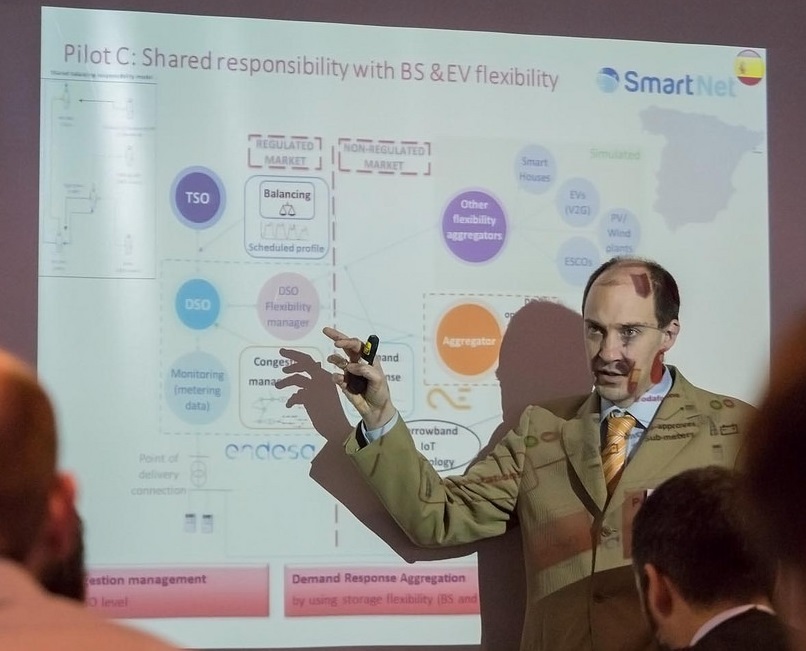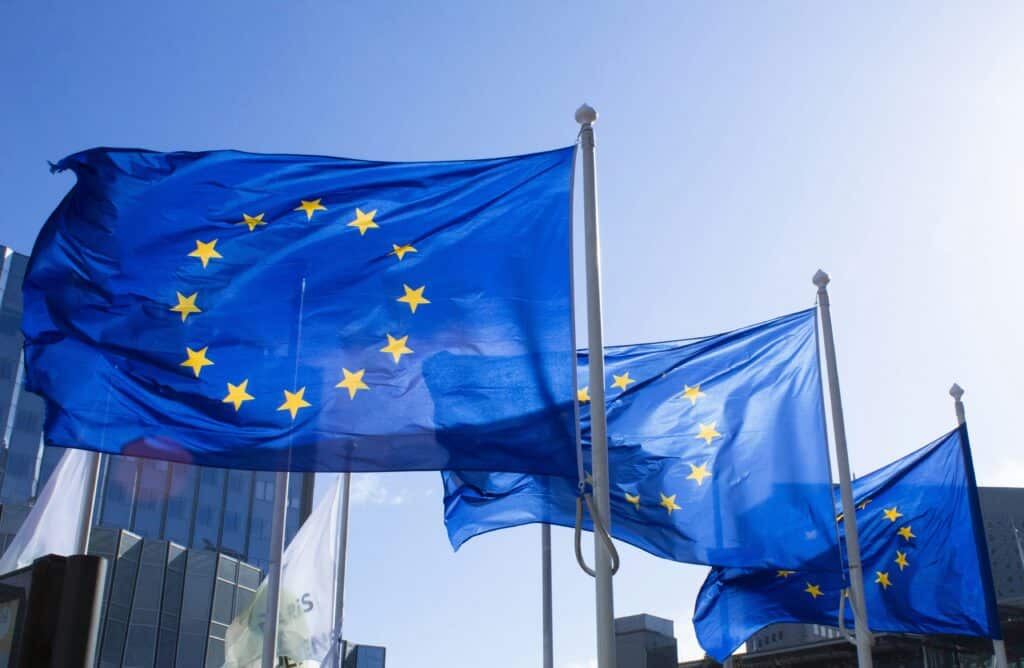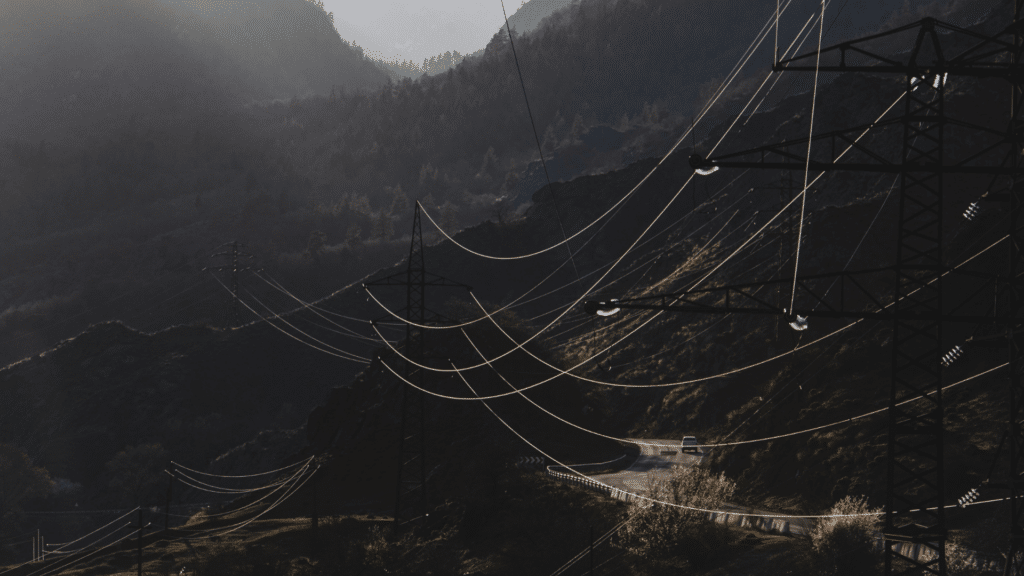FSR Topic of the Month – June Editor: Gianluigi Migliavacca (SmartNet Project)
written by: Carlos Madina (SmartNet/Tecnalia), Luca Ortolano (SmartNet/Terna), Henrik Madsen (SmartNet/DTU), Miguel Pardo (SmartNet/Endesa)
As described in the previous articles of this series, the SmartNet project proposes solutions for a deeper coordination between Transmission System Operators (TSOs) and Distribution System Operators (DSOs). The proposed coordination schemes, aggregator’s roles, market setups and information and communication technology (ICT) systems require the existence of an appropriate regulatory framework, which is not completely in place yet. In this regard, a few months ago, the European Commission proposed a new market design to increase the contribution from renewable energy sources (RES) and to empower electricity consumers to become central players in the energy markets of the future.
On the other hand, it is unclear whether technological barriers are hindering the development of the solutions proposed to improve TSO-DSO coordination. For this reason, the SmartNet project is developing three technological pilots, with the objective of testing different technical solutions, but also different coordination schemes and market setups, in various geographical locations across Europe.
Can the TSOs transform the challenge of power flows coming from distribution grids into an opportunity?
Electricity production from RES strongly depends on the availability of sun, wind or flowing water and, thus, is location-specific. Moreover, the places with good wind or flowing water availability usually correspond to locations with low electricity demand. Therefore, as RES penetration in distribution grids increases, reverse flows of electricity from the distribution system to the transmission one are becoming more frequent. This is the case, for example, of the valley of Ahrntal in Alto Adige/South-Tyrol (Northern Italy).
To transform the challenge of managing these reverse flows into an opportunity, the Italian TSO Terna and the local DSO Edyna are collaborating to improve both agents’ ability to observe and control the RES units located at the distribution level. Starting in September 2017, Terna will be able to receive aggregated information at the TSO-DSO interconnection point regarding the total power installed per RES type (hydro, PV), the total load and the gross load compensated by RES, together with real-time information about both active and reactive power production per source. Based on such information, Terna will be able, not only to know the exact amount of power coming from distribution to the transmission system but also to request RES owners to provide frequency and voltage regulation services to support system operation.
Can customers react to variable prices?
One of the aims of the legislative package proposed by the European Commission in November 2016 is to allow energy consumers to react to price signals. Still, small consumers do not have easy access to existing market setups, so they will need the support of an additional agent, the aggregator, who has the required knowledge of electricity markets and can put together the little flexibility of hundreds of consumers to bid significant volumes into wholesale markets. This way, small consumers will be able to support the DSO and the TSO in system operation indirectly.
The Danish TSO Energinet.dk and the local DSO in North-Western Denmark SydEnergi are implementing a pilot project to demonstrate the capabilities of summerhouses to react to price signals and contribute to system operation. In particular, it aims to demonstrate the use of price signals to control the set points of swimming pools’ thermostats in rental summer houses. The aggregator faces the main challenge. On the one hand, he must calculate the expected flexibility curve by summerhouses (i.e. how much electricity they will consume for each price level, also considering weather conditions and occupancy rates) and, on the other, he must create the appropriate bids to participate in the market where the TSO and the DSO post their flexibility requirements. The price signals broadcasted by the aggregator will then be used to calculate the optimal set point for the thermostats of all summerhouses.
Can the DSOs play a central role in empowering consumers?
Until now, DSOs had the duties of ensuring the supply of electricity with the required quality and of developing the distribution grid when needed. However, the latest European Commission’s proposal opens the possibility for DSOs to have a more active role in consumers’ empowerment, by allowing them to create and manage local markets to improve the operation of the distribution grid.
With the aim of testing DSOs’ capabilities to create and operate a local market for the procurement of ancillary services, Endesa, one of the biggest Spanish DSOs, is managing a third pilot project in the city of Barcelona. Starting this month, the DSO will use the flexibility of mobile phone base stations to reduce congestion in distribution grids and to help the TSO maintain system balance by fixing an exchange schedule at the TSO-DSO connection point. For that purpose, the DSO organises a local market, where different aggregators offer their flexibility. Based on market clearing, aggregators activate DER flexibility through direct control and the DSO checks the compliance with local market results.
All three pilots are beginning their execution phase during this summer. So, if you visit the mountains in South Tyrol, if you rent a house in North-Western Denmark or if you enjoy the lively Barcelona this holiday season, take a look at the power lines, as the future of European power systems may be starting there!






